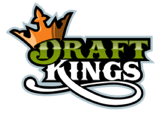What is (should be) the definition of gambling?


His argument is the old one that says anything requiring skill isn’t gambling. I don’t think anyone really buys that argument, since by that definition there’s nothing in vegas aside from maybe slot machines is gambling. But what I found curious was the comment from Michael Krasny, the host, that regulators didn’t have a problem with betting in the old season-long format, but only now when it became daily.
This issue of timescale rings true to me, and strikes me as being quite similar to other “vices” that we have always had trouble defining. For example, we’re perfectly fine with coffee (and for a long time cigarettes) but not many other psychoactive substances. Of course, the most famous example has to be that for obscenity, and Potter Stewart’s famous line that “I know it when I see it”.
I think the difficulty in each of those cases is finding an “objective” characteristic of the good (or I guess bad) itself (maybe I’ll just use "it"). Maybe we should instead define it from the perspective of the individual consuming “it". In all these cases, the reward itself is so incredibly impoverished, such that the pleasures of consumption is tied to some very specific aspect of the whole experience. Taking “it” away and the whole experience loses all motivational value.
In the case of coffee, people seem to consume at least two qualities. The caffeine and the taste itself (the fact that there is such a product as decaf is a pretty good indication). For cocaine, I’m guessing not. In the case of fantasy sports, there is the smack talking and the bonding experience. Take away the money, and plenty of people would still play (at least I did as a poor grad student). There's much less opportunity for that when we strip it down to a day.

This all seems so sensible that I’m sure someone has already written about this (or maybe this is what happens 12 hours into the flight). But if they have, it’s too bad that we’re still hearing the same flawed argument about requiring skill = not gambling. So here’s my proposed definition of gambling and other "vices":
An activity where immediate gratification is the sole motivation for its consumption.
My Typical Day

Anyway, overall I found it a surprisingly difficult question, so I thought about a bit afterwards. Here’s my answer (for now). Perhaps it would help people who are thinking about entering into this area, or just help demystify what a neuroeconomist/neuromarketing researcher does.
So instead of by type of day, I thought it’s more helpful to organize some of the types of conversations I have in a single day. The actual mix varies, but I think that’s a pretty good encapsulation.
Business school faculty: This group includes consumer researchers, psychologists, economists, etc. When I first came to marketing, I would spend a lot of time finding common starting point with them, in terms of our mutual interests. It could be something like branding or pricing, but mostly it took on an almost philosophical quality about what kind of science one can do.
A lot of the time was spent on debunking and setting right expectations, like, “It would be nice if there was an irrational part of the brain, but it’s a bit more complicated than that.” Nowadays we understand each other better, so the conversation is a lot of practical. They understand what we can and can’t do, and I understand what are some worthwhile questions. In fact, these conversations led me to start this blog.
- Practitioners/Managers: I’m having these conversations more often in the past couple of years. It reminds me a lot of those early conversations with bschool faculty, which makes sense since we’re just getting to know each other.
- My lab and collaborators: This includes basically people directly involved in my researchers. It’s a pretty electic bunch of biological scientists, social scientists, biomedical researchers, and methods people. This is when I can totally geek out, a lot about designing experiments, data analysis, using and developing new methods. And grant writing, lots of grant writing. That’s the one part I envy my Haas colleagues. Most of them don’t have to write grants.
- Students (both MBA and undergrads): One of the biggest challenges for those of us moving from basic to applied science is the teaching. For me, the turning point was when I stopped teaching students the knowledge that I think they should learn, but rather the knowledge that they will want to have one, five, ten years into their careers. This has made teaching marketing, data, and applying the scientific method to business both fun and useful. Simple customer-orientation when you get down to it, but like a lot of simple things in life, those are the hardest lessons to learn.